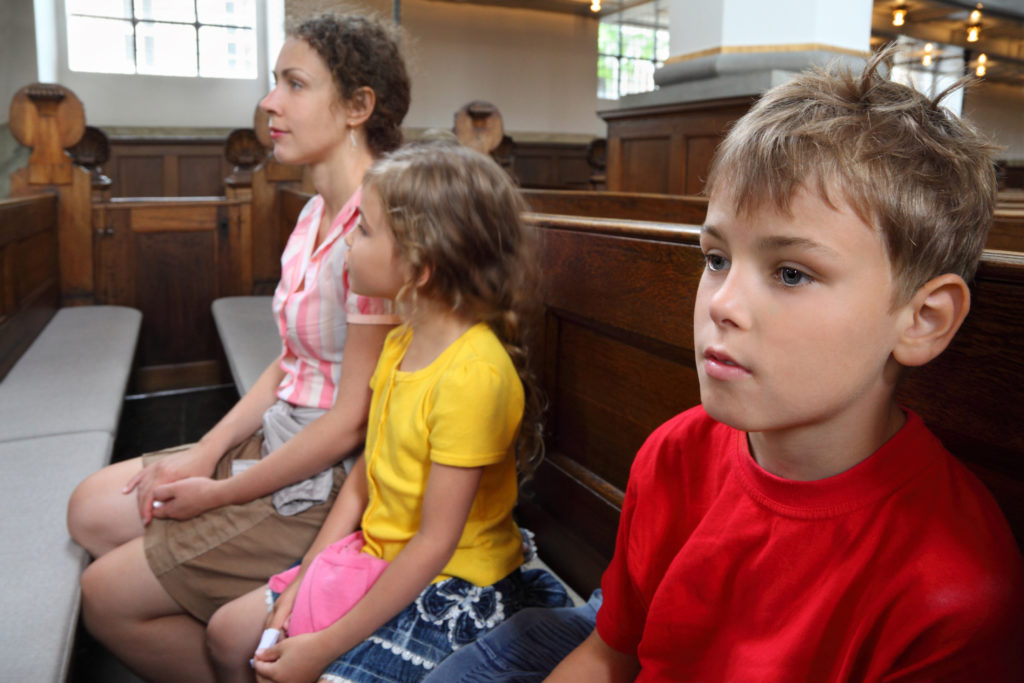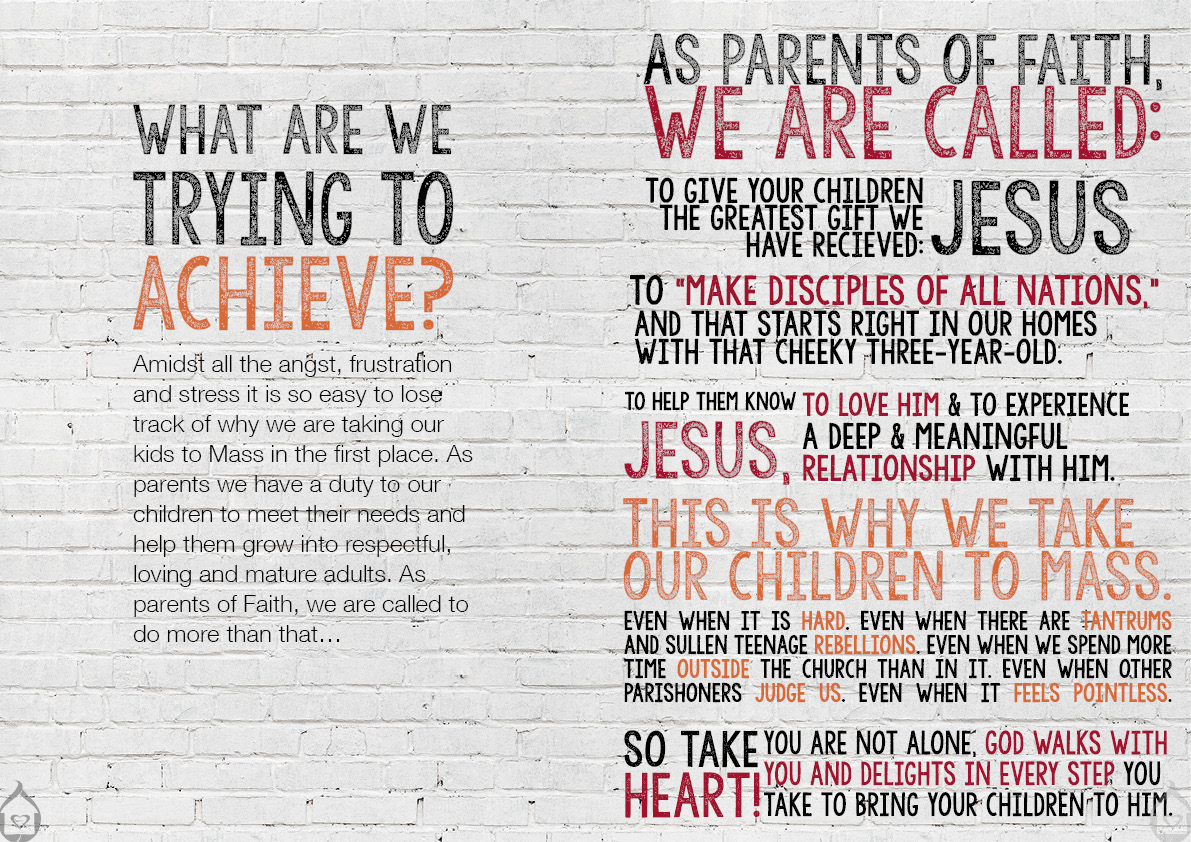Creating a family culture in your parish

Families are the foundation of our society and a microcosm of the Church itself. Children and their parents belong in Mass and our communities are so much richer for it. Our committed Mass goers have highlighted this particular truth in their experience of taking their children to Mass:
People fear being judged… not by God, but by other people.
Vibrant and growing parishes make a concerted effort to welcome families and make their parish culture like an extended family. Leadership from a parish priest is important, but it is the community itself that makes this culture happen.
Parish Tips:
- Each family is unique and parents have a range of discipline styles ranging from completely permissive to highly structured. Parishes need to respect the right of parents to raise their children according to their means and philosophy.
- Having said that, respect is a not just a two-way street, it should be a multi-lane highway. Parishes who encourage a culture of respect help parents teach their children to be respectful by practicing and being forgiving of imperfection.
- Let children be children! They are baptised children of God. They belong in Mass amongst a community of believers. Two-year-olds have bad days (like adults) and they are not shy about letting everyone know! That is okay, they will learn to regulate their emotions as they grow.
- Put compassion and understanding first and suspend your judgement! Many parents live under a cloud of judgement about their child’s behaviour, good and bad. A Parish should not add to this burden! It does not do parents or you any good to have a habit of assuming the worst about children behaving poorly. You just don’t know the context of that child’s behaviour! Let go of your frustration and pray for the parents and offer a sympathetic smile instead.
- Form a ‘Parent Support Team’. It is as simple as getting a bunch of parishioners who buddy up with families and are available to help them out with restless toddlers or grumpy children to give the parents a chance to get some much need spiritual nourishment.
- Remember: Parents live a life of constant tension between resolving the current crisis and achieving the long-term objective. They are conflicted: “Do I give him/her what he wants now to quiet him or should I be teaching him/her how to wait patiently which is essential for him/her to be a good, virtuous adult.” The parish community needs to be there to support parents in their long-term goal, even if it means some discomfort in the short-term.
A word on discipline
That dreaded word is often associated with punishment, but it is far more than that.
Discipline comes from the same root word as ‘disciple’ and it means ‘to teach.’ It is about positively teaching children in age-appropriate ways how to behave. Sometimes this might mean enforcing consequences, but it also means praising good behaviour and encouraging it. It also means setting an example and modelling the behaviour you want from your children. It sees mistakes as crucial teaching points rather than as failures. Discipline also instils a deep appreciation and love for something.
Discipline cannot be done in abstraction either. You cannot teach someone to ride a bicycle by explaining from a book. You have to get on the bike and try! You’ll also probably fall off it a few times too. That is all part of the discipline of learning to ride a bike.
It is the same thing with your children and Mass. They cannot learn how to behave in Mass or how to love and appreciate it without being there.
“The funniest thing I ever witnessed was one Saturday night this little boy and his mum were running a little late for Mass and they arrived just as Father arrived at the altar and turned around to begin. The little fellow was walking down the aisle, saw Father and at the top of his voice called out “HELLO GOD!”. This bought the house down! Obviously the little boy’s mother had said they were going to say “Hello” to God so he did.” – S. J
It can be helpful to take some time during the week to familiarise your children with the church itself. Visit the church on a weekday where there are less people and less pressure. You can teach your kids some prayers, show them how to genuflect and use the holy water, take them to see some of the artwork and become familiar and comfortable with the space.
Practice at home!
The key to managing your child’s behaviour is to make sure they know what is expected of them. Get a Missal and do a practice run of standing, sitting, kneeling, saying prayers, the sign of peace etc. This is also a good time to explain what is appropriate behaviour in Church and how to pray to Jesus when you visit.

